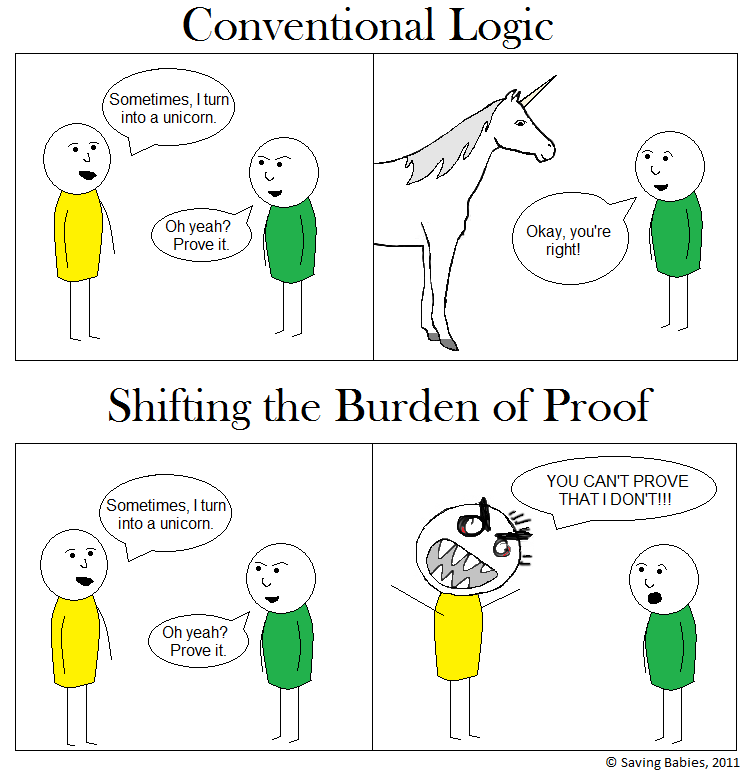
Bad Arguments: Shifting The Burden of Proof
The misunderstanding of the burden of proof is one of the biggest reasons logical arguments with theists fail. The person making the claim has the burden of proof. That’s how it works. It’s your job to prove your point, not their job to prove you wrong. If you can’t defend your argument with proof, that doesn’t necessarily mean you’re wrong, but it does mean that there’s no reason to believe you.
A common tactic theists use is to shift the burden of proof. This is usually phrased as “you can’t prove there is no god”. Here’s the catch. I’m not saying there is no god. I’m saying you haven’t convinced me that there is one. It’s not my job to prove no gods exist. It’s their job to prove that a god or gods do exist. They made the claim that a god exists. They usually also make the claim that they have the right god, and the claim that they know what the god wants. That’s three separate claims that each require proof.
Atheism is the LACK OF BELIEF, not the belief in lack of gods. I can’t stress that enough. Most religious people have no idea what atheism actually is, thus the constant barrage of strawmen arguments. Think of it this way. The theist says “There is a god”. The atheist says “I don’t believe you”. The atheist is NOT saying “You are wrong”.
The theist has to prove there is a god. Once they do that, then they have to prove they have the right god. Then they have to prove they know what he wants. As of now, no theist has ever proven a god exists, so how can they prove any of the rest?
Back on topic, shifting the burden of proof is not only a logical fallacy, it’s also intellectually dishonest. We aren’t two sides of the same coin. Lack of belief isn’t a claim. No claim, no burden of proof. It’s that simple. The reason theists resort to this type of tactic is to distract us from the real problem. It’s a smoke screen. It’s a way of saying that if I can’t prove them wrong, then they win by default. This is simply not true. I’ve said it a million times. Any claim stands or falls on its own merits.
If you believe something, there should be a reason. You should also be able to convey that reason to others. If you can’t, then I have no reason to believe the same thing you believe. For instance, personal experience is a logical fallacy. I’m sure many people believe they have personally seen or heard their god. But I can’t verify that they actually did. I can’t even verify that they actually think it. They could be lying. They could be delusional. Thus, it’s a logical fallacy and doesn’t count as proof. I still don’t have to prove they are wrong. THEY made the claim. THEY have to prove it.


